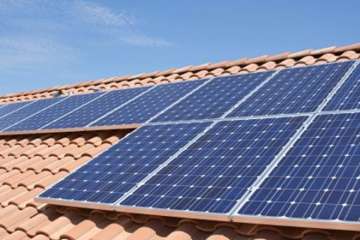Govt mulls basic customs duty of 20% on solar equipment
The government is considering basic customs duty of around 20 per cent on solar energy equipment to provide an edge to domestic manufacturers and discourage imports, particularly from China.

The government is considering basic customs duty of around 20 per cent on solar energy equipment to provide an edge to domestic manufacturers and discourage imports, particularly from China. However, solar energy developers are of the view that basic customs duty (BCD) on solar equipment will be counterproductive for the segment in view of India's ambitious target of having 100 GW of solar energy by 2022.
"The government is actively considering about 20 per cent basic customs duty on solar equipment because safeguard duty (SGD) on these is applicable till July 29, 2020," a source said.
At present, 15 per cent SGD is applicable on solar cells. This would be zero or nil from July 30, 2020.
There is no BCD on solar equipment as of now. Once BCD is imposed, it would be applicable on imports from all countries.
In July 2018, India had imposed SGD on solar cells imports from China and Malaysia for two years to protect domestic players from steep rise in the inbound shipments of the products.
The government had imposed 25 per cent SGD for the period July 30, 2018 to July 29, 2019, which gradually came down to 20 per cent for July 30, 2019 to January 29, 2020 and 15 per cent for January 30, 2020 to July 29, 2020.
"Since there will be zero duty on imports of solar equipment from July 30, 2020, there have been internal discussion in the ministries of new & renewable energy and finance," the source said.
Commenting on the issue, Shekhar Dutt, Director General, Solar Power Developers Association (SPDA) said,"Proposal to impose BCD of 20 per cent on cells and modules is counterproductive to the growth of overall solar power sector in the country."
He pointed out that SGD hardly resulted in any increase in cells/ module production or increase in competitiveness of domestically produced modules.
Also, it does not reduce the industry’s dependence on raw materials like cells, wafers and ingots which anyways have to be imported, he added.
He suggested that the need of hour is to have a comprehensive strategy to develop the whole ecosystem which can promote production of entire value chain of solar modules which starts with production of metallurgical grade silica from quartz, ingots, wafers, cells and modules.
The SPDA supports an incentive scheme to develop India as solar manufacturing hub on large scale to compete with best international products at competitive price.
Any ‘tariff’ or ‘non-tariff barriers’ at this stage is not conducive to meet the target which India has committed as a nation to the world and will make electricity costly for consumers, he added.
Notwithstanding this, if the government is determined to curb Chinese imports, any customs duty or safeguard duty should not be applicable to solar projects that have already been auctioned which must include projects for which bids have been submitted or Letter of Award issued or power purchase agreement signed, he suggested.
Commenting on the issue, Pinaki Bhattacharyya, CEO, Amp Energy India said, "The government should focus on reducing the cost of domestic manufacturing of modules and cells with cost subsidies, interest subversion and lower power cost. This also ensures competitiveness in global market. Trade barriers like SGD did not do much and so customs duty just increases the cost of solar power for consumers which is not the best move."